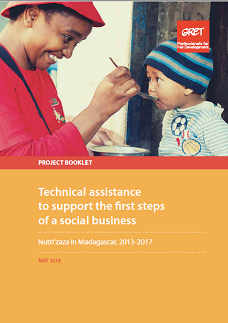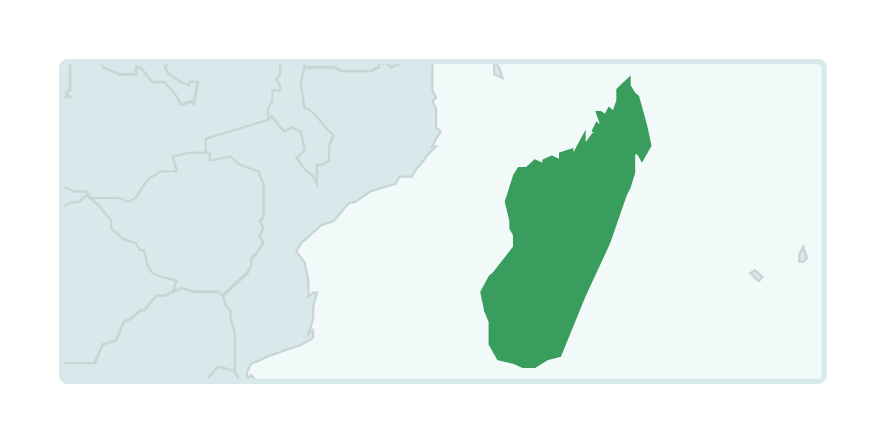$l10n parameter must be an array. To pass arbitrary data to scripts, use the wp_add_inline_script() function instead. Please see Debugging in WordPress for more information. (This message was added in version 5.7.0.) in /var/www/gretrec.digital.bluesoft-group.com/wp-includes/functions.php on line 5665


Cette collection a vocation à partager de façon synthétique des expériences de projets conduits par le Gret et ses partenaires. Dans une forme allégée, elle donne à voir les résultats d’un projet (contexte, démarche, intérêts, bilan technique et économique, etc.) et les recommandations qui en découlent. Le texte est enrichi de visuels et de courts témoignages d’acteurs impliqués dans l’élaboration et la mise en œuvre du projet.
Chronic malnutrition affects 50 % of Malagasy children1 aged between 6 and 24 months, i.e. 900,000 children. Less visible than acute malnutrition, it causes developmental delays (size, cognitive development) and undermines health. The sequels are irreversible after the age of two, and chronic malnutrition is responsible for 35 % of deaths in young children.
One of the causes is insufficient quality of foods for young children. Breastfeeding and feeding practices do not meet their needs, and manufactured complementary foods available on the market are generally poor in quality or not affordable, with 80 % of Malagasy families earning less than 1.90 $ a day.
Nutri’zaza is a social business that was set up in 2013 to extend and sustain the results of 14 years of projects led by GRET with its partners (IRD, Antananarivo University, TAF, Malagasy institutional stakeholders) to improve infant feeding practices in poor neighbourhoods in urban areas of Madagascar2.
Its action is based on marketing of a complementary food in line with international standards that is affordable for all: Koba Aina (“flour of life”). The latter is distributed via the traditional network and by the institutional network of organisations conducting nutrition projects, as well as through the innovative Hotelin-jazakely “restaurants for babies” network, located at the heart of neighbourhoods.
“Nutri’zaza was set up in 2013 by five partners that were convinced social entrepreneurship was a solution for development: GRET, TAF, Sidi, I&P and Apem. Together, we set ourselves a challenge: combine economic efficiency and social equity over the long term” says Olivier Bruyeron, managing director of GRET, an NGO that is a member of the business’s board of management.
To support the first steps of Nutri’zaza during its first five years, GRET acted as technical assistant withsupport from Agence française de développement (AFD) and the Innovation for development fund (Find3). Between 2013 and 2017, alongside other shareholders, it supported Nutri’zaza to gradually reach a balanced budget, extend its distribution network to 100 Hotelin-jazakely, and defend social business as a means of sustainable action against poverty in the Malagasy institutional environment.
This document outlines results and presents the main lessons learned by GRET over its five years of technical assistance to Nutri’zaza.